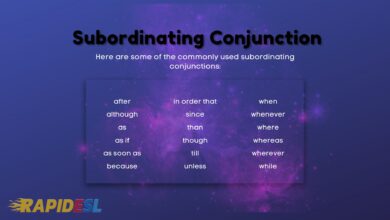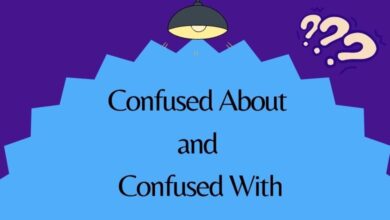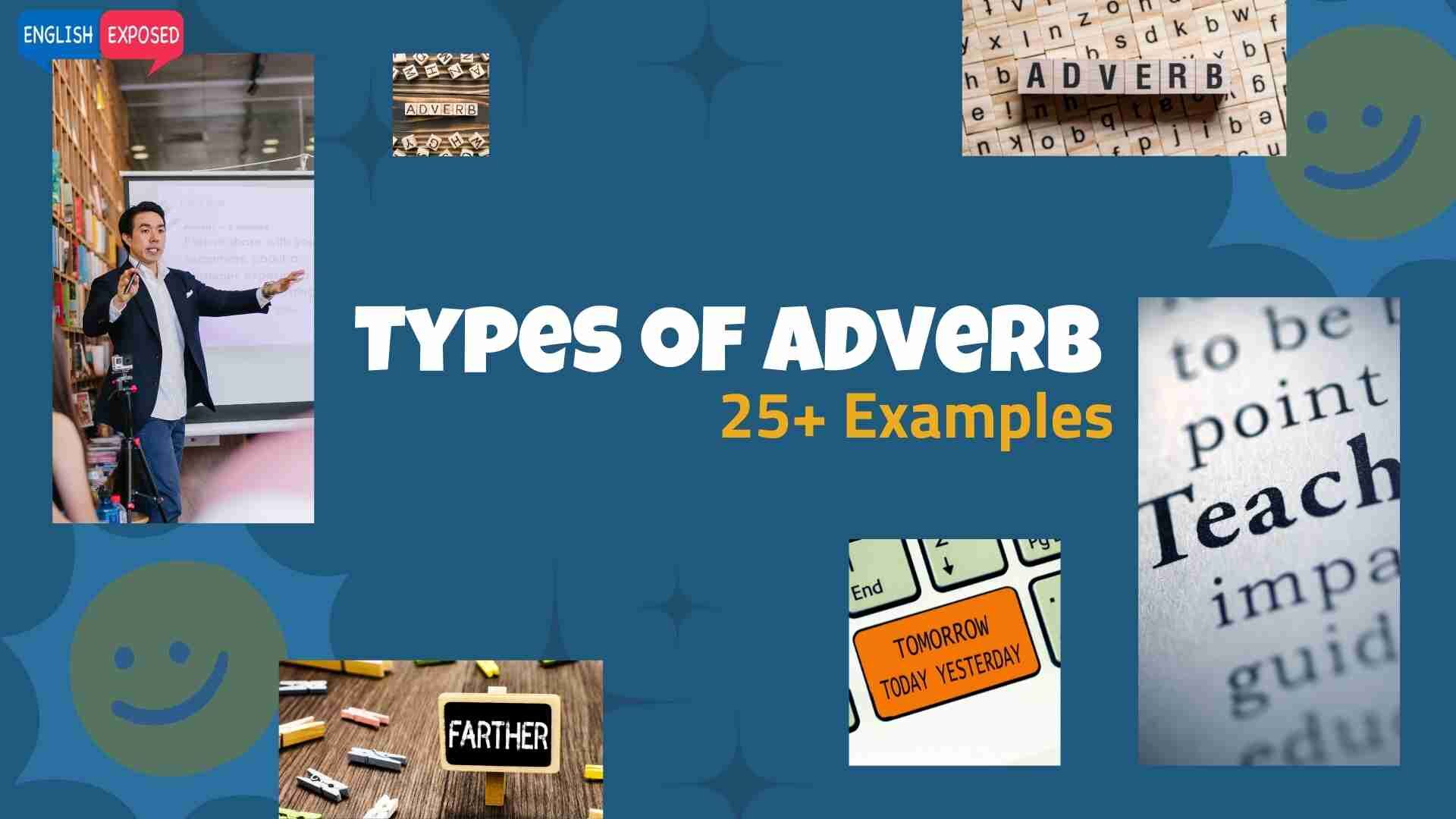
Types of Adverb List With 25+ Examples
Types of Adverb List With 25+ Examples
What is an Adverb?
A word that describes a verb, adjective, determiner, clause, preposition, or sentence.
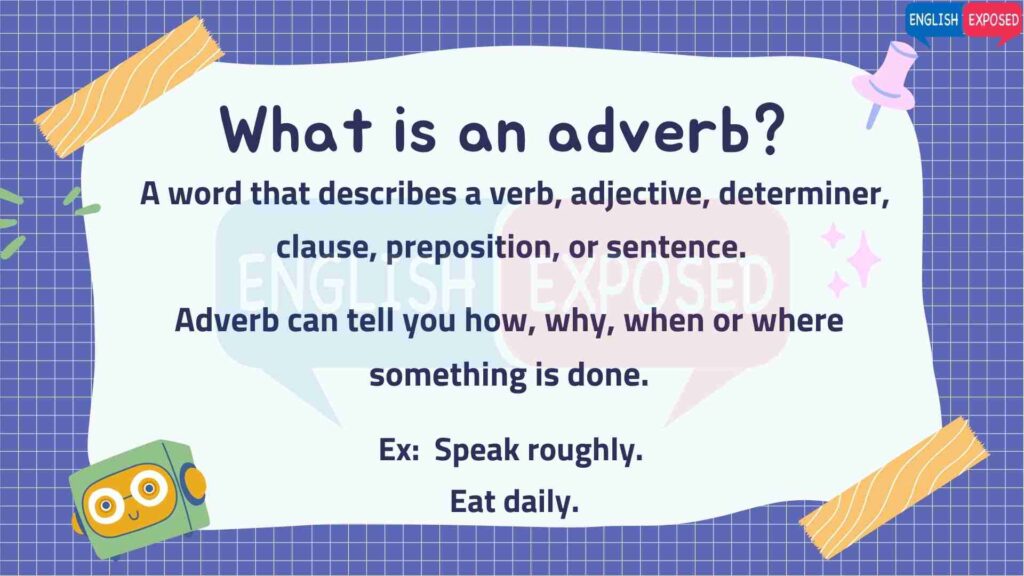
Adverb can tell you how something is done. for example, speak roughly or eat daily. Adverbs can also tell you how much, how many or where is the something you have.
List of Adverbs
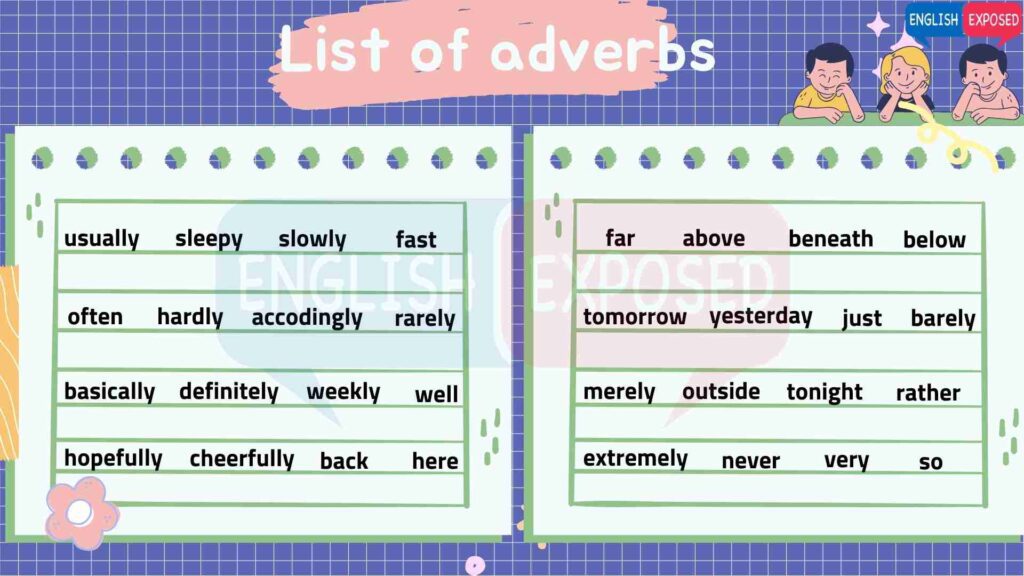
Types of Adverb
- Adverbs of time
- Adverbs of manner
- Adverbs of degree
- Adverbs of place
- Adverbs of frequency
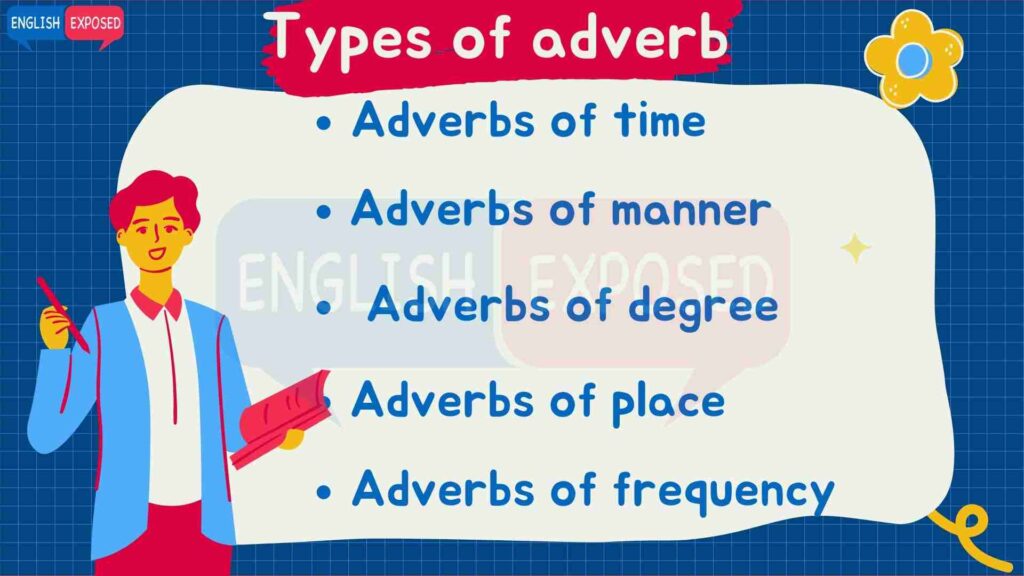
Adverbs of Time
An adverb that gives more information about when a verb is carried out, it also answers the question when? Adverbs of time are often placed at the beginning or end of a sentence. When it functions to express the moment something happened, we place it at the beginning of a sentence.
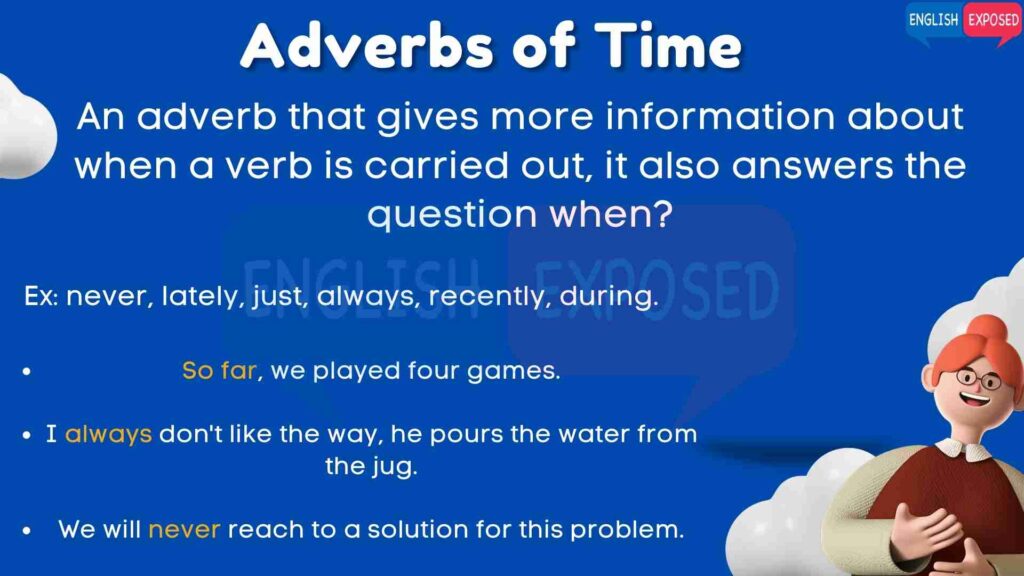
Examples of adverbs of time: never, lately, just, always, recently, during, later, tonight, soon, sometimes, usually, so far, often.
- So far, we played four games.
- I always don’t like the way, he pours the water from the jug.
- We will never reach to a solution for this problem.
Adverbs of Place
An adverb that clarifies where the verb is currently occurring. We often put it after the main verb or object, or at the end of the sentence.
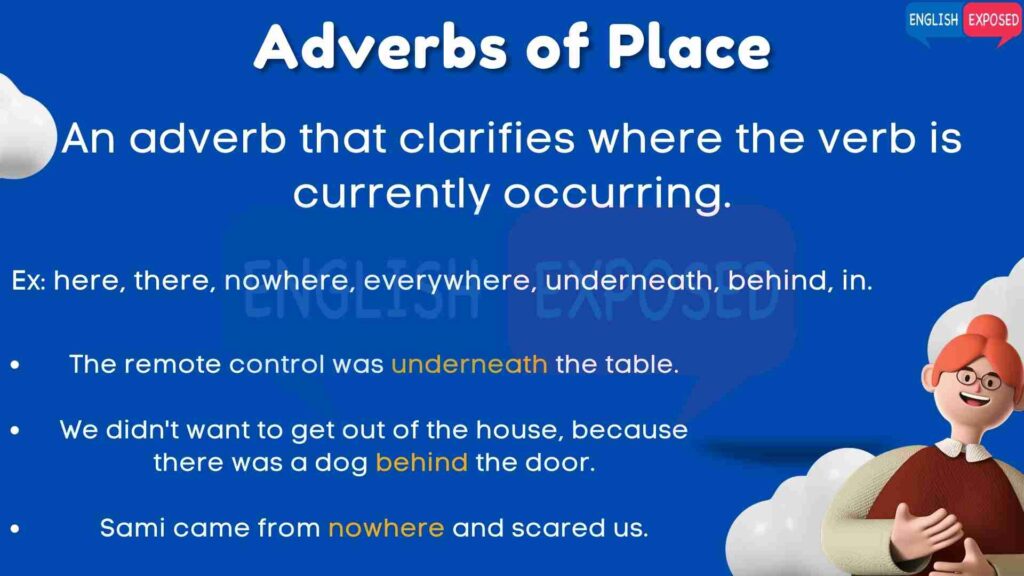
Ex: here, there, nowhere, everywhere, underneath, behind, in, above, below, inside, outside, into, beneath, on.
- The remote control was underneath the table.
- We didn’t want to get out of the house, because there was a dog behind the door.
- Sami came from nowhere and scared us.
Adverbs of Manner
An adverb that tells us how a verb is done. Adverbs of manner are almost the most common adverbs, in which, most of the end with -ly.

Examples of adverbs of manner: neatly, slowly, quickly, sadly, calmly, politely, loudly, roughly, easily, cheerfully.
- He killed the ant roughly.
- I quickly walked to the door to open it.
- He cheerfully celebrated his graduation.
Adverbs of Degree
Adverbs of degree specify the degree or intensity of a verb, adjective, or even another adverb.

Ex: very, also, deeply almost, quite, too, barely, enough, just, hardly, simply, so.
- The event was very important.
- He becomes so angry, when someone makes fun of him.
- He almost broke the sofa, when he sat on it, because of his heavy weight.
Adverbs of Frequency
while we are talking about the types of adverb, we should mention this type. We use this adverb to explain how often an action or verb occurs, or simply to say how often we do things.
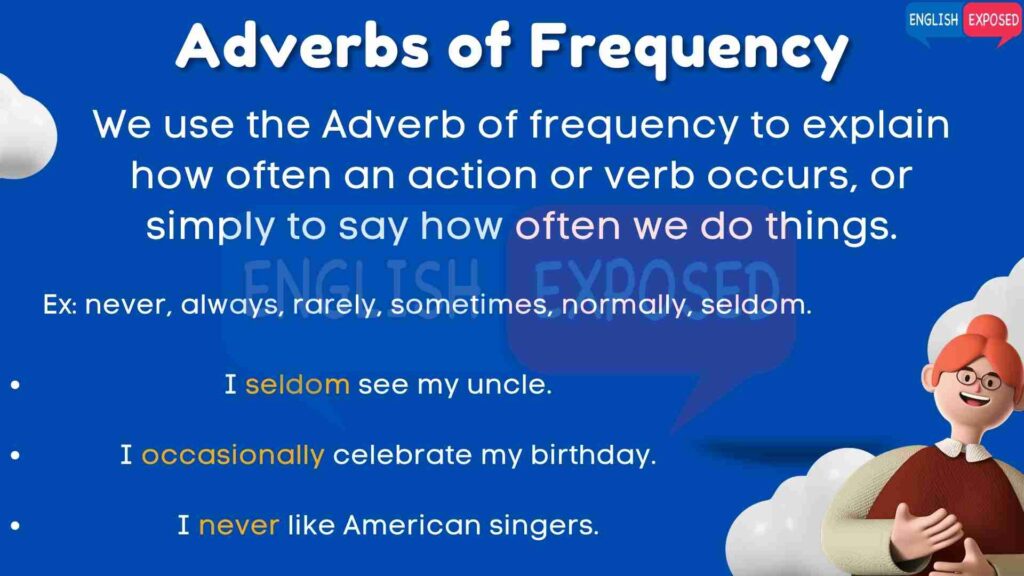
Ex: never, always, rarely, sometimes, normally, seldom, usually, again, occasionally, eventually
- I seldom see my uncle.
- I occasionally celebrate my birthday.
- I never like American singers.
Conjunctive Adverb
this type of adverb that functions as a conjunction to connect two independent sentences or clauses of any kind.
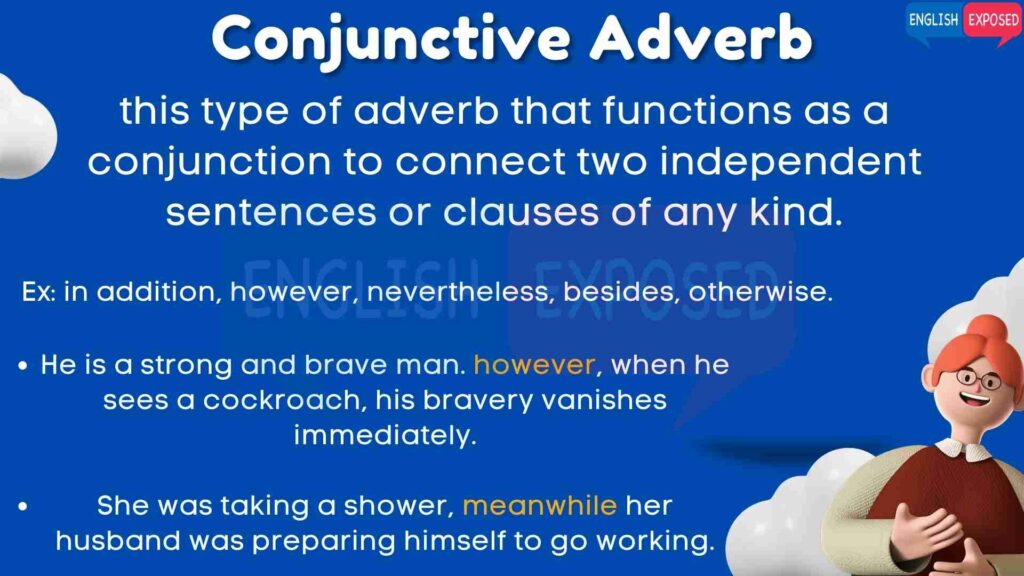
Ex: in addition, however, nevertheless, besides, otherwise, accordingly.
- He is a strong and brave man. however, when he sees a cockroach, his bravery vanishes immediately.
- She was taking a shower, meanwhile her husband was preparing himself to go working.
Adverb Phrase
Or Adverbial phrase, is a group of words or type of sentence that function as an adverb. An adverb phrase consists of two or more words that describe the verb in more details. Since they consist of more than one word they can answer different questions: How? Where? Why? and When?
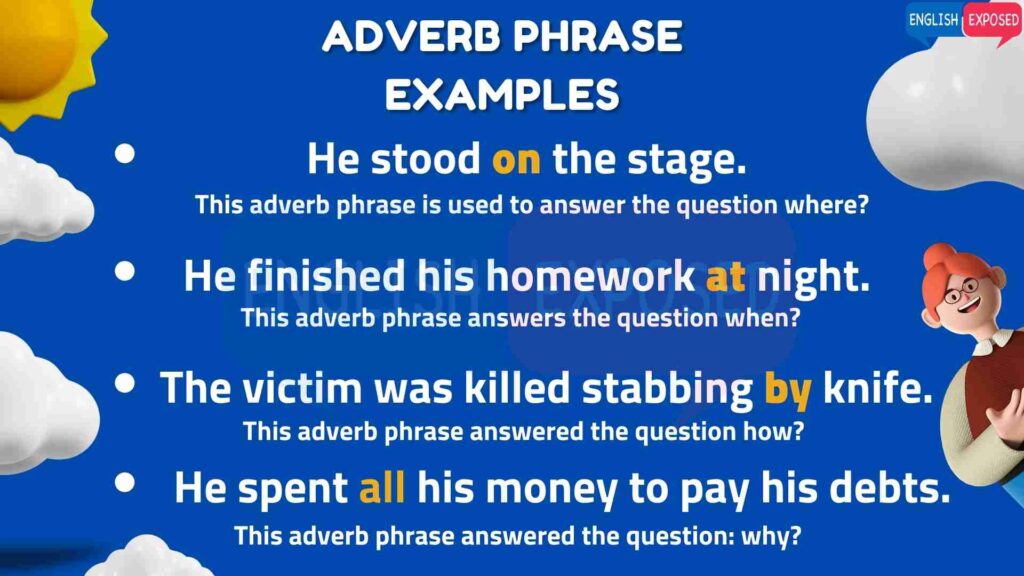
- He stood on the stage.
This adverb phrase is used to answer the question where?
- He finished his homework at night.
This adverb phrase answers the question when?
- The victim was killed stabbing by knife.
This adverb phrase answered the question how?
- He spent all his money to pay his debts.
This adverb phrase answered the question: why?
Adverb vs Adjective
After we dealt with types of adverb above, now we will be talking about the difference between these two. The main difference between an adverb and an adjective, is that the adjective is used to describe only nouns, whereas the adverb can describe nouns, adjectives and verbs.
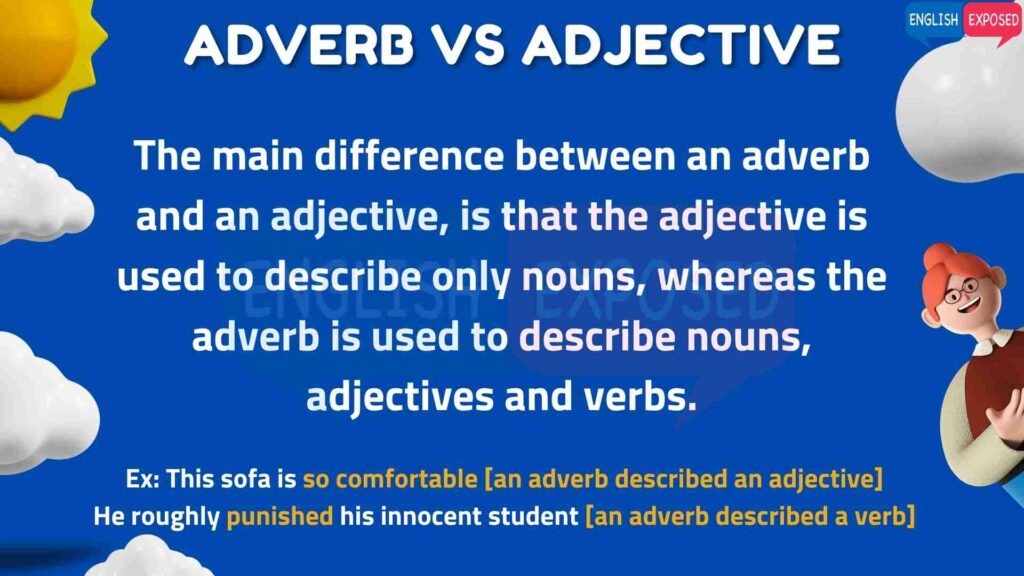
Ex:
This sofa is so comfortable
In the sentence above, we used an adverb and an adjective. The adjective is the word “comfortable” which describes the noun “sofa” and the adverb is the word “so” which describes the adjective “comfortable”
He roughly punished his innocent student
In the previous sentence, we notice that we used the adverb in different function, in which, it now describes the verb “punished”. We also added an adjective which is the word “innocent” to describe the noun “student”
Adverb can also describe another adverb in the same sentence.
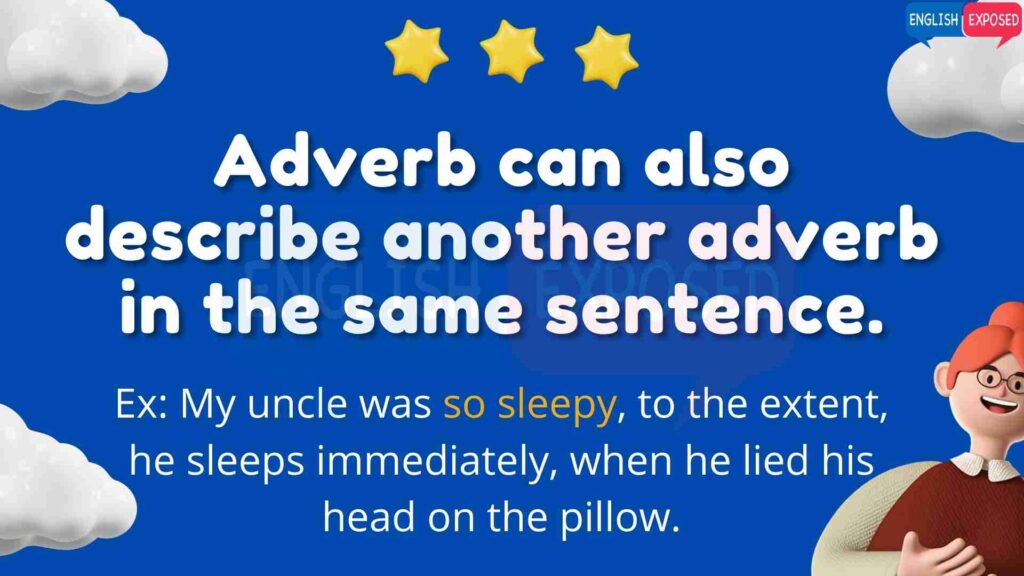
Ex: My uncle was so sleepy, to the extent, he sleeps immediately, when he lied his head on the pillow.
In the sentence above, we notice that we used the adverb “so” to describe the adjective “sleepy”
More to read:
44 Phrasal Verbs Beginning with A (with examples)
Parts of Speech In English (Definition and Examples)
Food List | 99+ Foods Names in English
55+ Foods That Start With E (With Pictures)
List of Proteins Foods in English | Protein Words List

